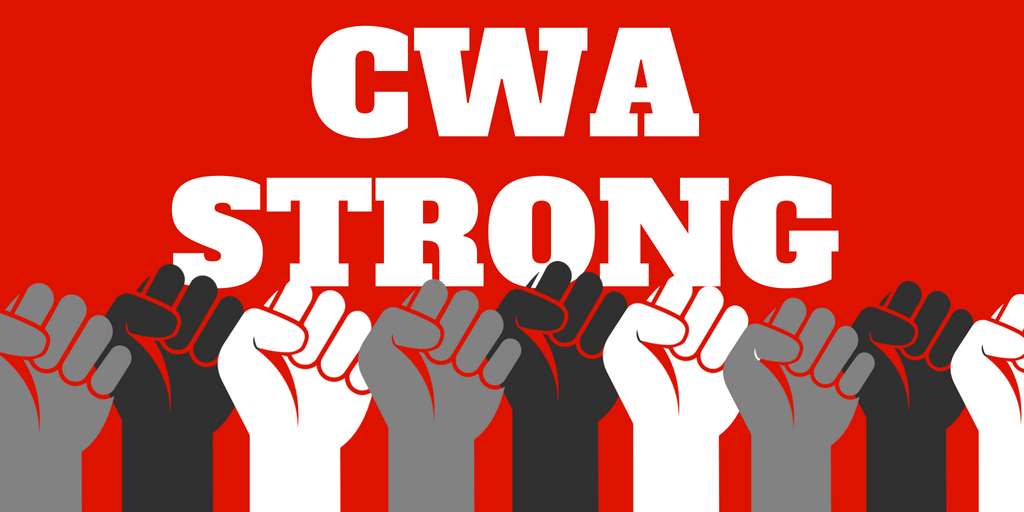The union representing workers in the media industry, Communications Workers of America, has been urging regulators in the Federal Trade Commission and Department of Justice to prioritize labor market impacts before overhauling the existing corporate merger guidelines. The agencies are currently reviewing the Activision Blizzard deal in light of antitrust legislation.
Communications Workers of America is a union which “represents working people in telecommunications, customer service, media, airlines, health care, public service and education, and manufacturing.” The organization has nearly a million members including many in the games industry.
“In order to preserve fairness in labor market competition, Communications Workers of America recommends assessing how proposed mergers exacerbate corporate dominance over workers including through the suppression of wages, restrictive contracts like non-competes that reduce worker mobility, and denial of workers’ ability to exercise their legal rights by imposing nondisclosure agreements, mandatory arbitration agreements, and engaging in practices like union busting,” the union said in a statement.
This comes in the wake of a recent announcement by the Federal Trade Commission and Department of Justice earlier this year that both agencies would be updating the corporate merger guidelines in order to prevent anticompetitive deals. “Currently, a narrow consumer welfare standard has been the cornerstone of antitrust analysis which prioritizes impacts on consumer prices and too often takes corporations at their word that consolidation will benefit the public,” the union explained.
The organization pointed out that updating antitrust legislation would directly impact the Activision Blizzard deal. “Communications Workers of America has raised similar concerns about Microsoft’s pending acquisition of Activision Blizzard, calling for a thorough Federal Trade Commission review in light of union organizing underway at the game developer and the fact that Microsoft stands to gain considerable market power. The acquisition would make Microsoft the third largest game developer in the world and increase the company’s power to control content available on its console and streaming through its platforms.”
“When a handful of mega-corporations dominate concentrated industries, they assert control over labor markets and wages, not just consumer prices,” Communications Workers of America President Chris Shelton remarked. “Collective bargaining agreements give workers a voice and help protect their interests during a merger. We need sensible merger guidelines that evaluate the impact of these deals on workers. We also need stronger labor and consumer protection laws and restraints on unfair methods of competition.”
Communications Workers of America drew a comparison to the recent merger between T-Mobile and Sprint. This deal was closed back in April, 2020. “T-Mobile committed to being ‘a job creator from day 1,’ promising 3,500 new full-time jobs in the first year following its merger with Sprint and 11,000 more by 2024,” the union asserted. “Instead, T-Mobile has closed 32 percent of its corporate operated stores, 13 percent of its T-Mobile third party licensee stores, and 18 percent of its Metro by T-Mobile prepaid stores since the merger, representing an estimated total of 19,840 jobs eliminated.” The result was “fewer job options and lower wages” for workers across the board.
“Similar to wireless retail workers, game designers are at risk for wage suppression and limited job opportunities as industry consolidation has accelerated, led by gaming power players Microsoft and Sony, especially if practices like noncompete agreements continue,” Communications Workers of America said.
“Merger review is a critical intervention point to address abusive dominance by corporations over workers and the crisis of inequality in our economy and the merger between T-Mobile and Sprint is a prime example of why revisions to these guidelines are so critical,” Communications Workers of America Research Director Nell Geiser noted. “The last administration’s flawed review of that deal failed to examine evidence of potential job losses and wage suppression or to consult with worker representatives. The result is a highly concentrated wireless sector that is squeezing consumers, workers, and small businesses.”
The union laid out several recommended protections for collective bargaining rights and worker free association along with several other provisions.
“Regulators should examine both indirect and direct evidence of market power in assessing potential merger harms,” Communications Workers of America remarked. “Direct evidence of employer market power includes imposition of noncompete and similar job-switching restrictions as well as nondisclosure restrictions, misclassification, and forced arbitration and class action restrictions. Where a firm seeking to merge is able to impose one or more of these restrictions on its workers, the presence of these restrictions should be recognized as direct evidence that the firm has market power in the labor market where it is imposing the restrictions.”


.jpg)